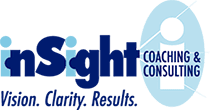Leadership & Emotional Intelligence
An exciting new research study crossed my desk recently entitled: “Leadership & Emotional Intelligence: The Keys to Driving ROI and Organizational Performance“. Both my work with clients and my own development as a leader has shown me over and over the importance emotional intelligence (EI) plays in leadership and life effectiveness. This recent study by MHS and HCI reveal the results of a survey of more than 500 companies on the impacts EI has on leadership effectiveness and ultimately organizational performance (including financial). Key findings of this research prove some important hypothesis around the importance of strong EI within organizations. Highlights are shown below:
Individual contributors and managers disagree about what leadership behaviors are most important in today’s environment. Managers generally felt coaching skills were not as important whereas twice as many individual contributors stressed coaching skills as very important.
Both managers and individual contributors see self-awareness, communication skills and interpersonal skills (all EI competencies) as very important behaviors now and into the future.
Organizations who spend a considerable amount of their training and development budget (31% or more) on leadership development are 12% more likely to report positive revenue growth.
Unfortunately, many organizations spend 10% or less of their training and development budget on leadership development.
Further, findings suggest that the most commonly used leadership development methods are rated among the least effective.
Workshops and classroom training are two of the most frequently used leadership training methods. Cromwell and Kolb (2004) suggested that as little as 15% of classroom training efforts leads to sustained behavioral change within the workplace.
Although, HR Managers cited the following as the most effective leadership development efforts:
- Emotional Intelligence Assessments
- Executive Coaching
- Global Assignments
- Formal Mentoring Programs
- Job Rotations
In an age of rapid change, knowledge workers and a new generation of talent, emotionally intelligent leadership is only becoming more important. It all starts with awareness both individually and organizationally.
How are you developing yourself? How are you developing your leaders? How might you incorporate more effective methods such as Emotional Intelligence and coaching into your leadership development practices?
“I believe that the old command system must be replaced. Fixing it is not good enough. My view is that authority should be replaced by leadership.”
– Marvin Bowers
